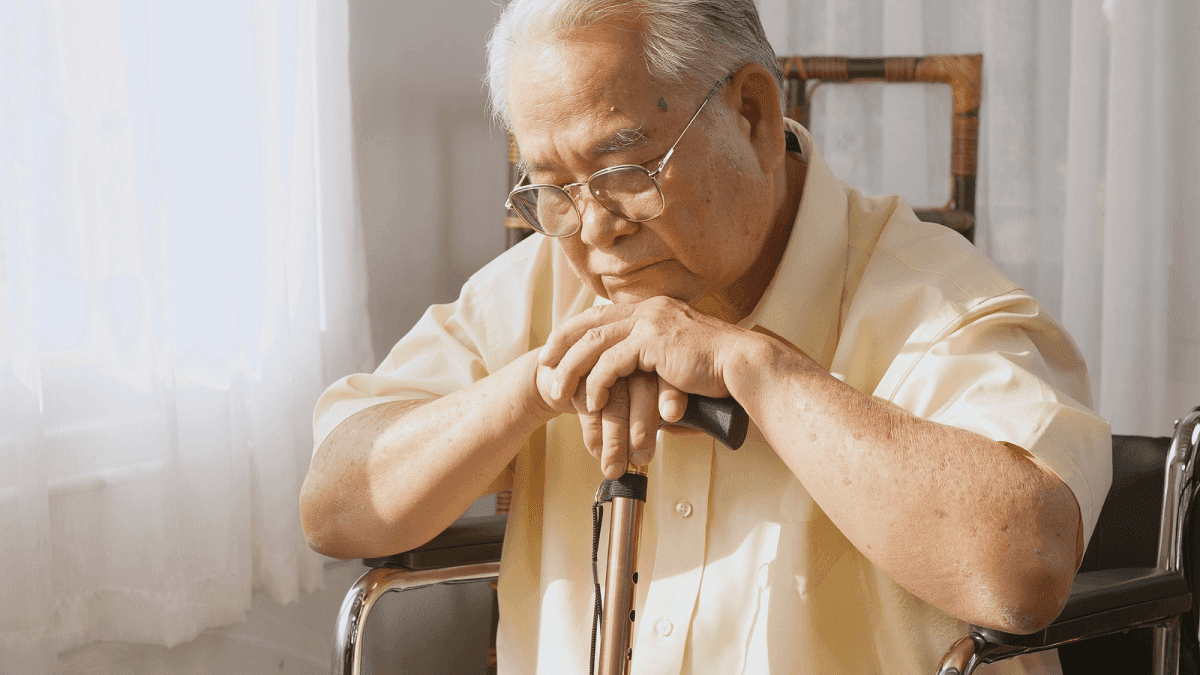
Caring for a loved one experiencing dementia is challenging. Among the many difficult circumstances that accompany dementia is the paradox of how to deal with these two contradictory truths: living safely and comfortably at home is extremely difficult and living in the familiar surroundings of the home is extremely important. Moving can be debilitatingly disorienting for folks living with dementia. As a result, anything that can be done to make the home more accommodating is critical.
One challenge that’s especially important to address is stairs. Stairs are highly unsafe for dementia patients. Dementia and other related disorders affect memory and cognitive performance, but they may also impact movement and balance as well. This type of neurodegeneration leads to a lack of safety on the stairs. Supporting loved ones with dementia is essential for their safety and wellbeing, and an important element of that support is making stairs secure.
You have a number of options for improving stair safety in your home for a loved one living with dementia, including the following:
Dementia affects the brain’s ability to perceive depth and to sense contrasts. This is a particular problem on stairs since depth perception is key to using them safely. Since stairs are typically all the same color, dementia patients are often unable to discern one step from another. To help your loved one see the steps more clearly, you can place brightly colored tape on each step and on the risers.
Never leave anything on the stairs for your loved one to trip on. The stairs are tricky enough as it is without having to avoid hazards. Don’t use rugs on stairs or anything that could pose a tripping danger. Eliminating porch mats and other rugs makes entries safer as well.
Longer staircases have handrails and banisters, but many shorter stairs do not. Rails make stairs of any length safer to use. One place that is likely to have stairs but no handrails in the home’s entry, as these areas are often open. Handrails facilitate safe entry into the home.
Many trips and falls can be prevented by installing adequate lighting on stairs. Make sure your stairway is brightly lit from bottom to top, and that switches are available to turn on the lights at both ends. Motion-sensitive lights may also be a good idea.
A stairlift, also known as a chairlift, is a mobility assist device that allows people with mobility challenges to safely and freely move up and down the stairs in their own homes with little or no assistance. Stairlifts attach to the treads of the stairs and are available in a variety of configurations to fit almost any stairway. Southern Mobility Solutions has quality stairlifts for sale, and our skilled team is available to help you find one that’s right for your situation.
But can a person with dementia safely operate a stairlift? Are these a good option for dementia patients? Every situation is different, and the answer really depends upon your specific circumstances. That said, here are some factors to consider when deciding on a stairlift:
How physically healthy is the person?
In order to use a stairlift, your loved one needs to be physically capable of comfortably getting into and out of the lift seat. You might arrange to have a physical or occupational therapist assess whether the individual can safely manage the physical requirements of using a stairlift.
Will the individual require supervision while operating the lift?
Having a caregiver present to make sure that the lift is being operated correctly can make all parties feel more secure. The caregiver can make sure that the seat belt is safely fastened and that the person does not try to exit the lift while it’s operating.
Will the patient actually use the lift?
Sadly, hallucination and other distortions often accompany dementia. As a result, many dementia patients struggle with fears about new things. It’s important to consider carefully whether your loved one will accept the lift and feel comfortable using it.

If you’re ready to explore options for helping your loved one navigate the stairs in their home more safely, call Southern Mobility Solutions today. We have straight and curved stairlifts for sale. We offer competitive prices and exceptional customer service. We are the local experts in mobility solutions, and we have the answers you need to help your loved one continue to live at home.